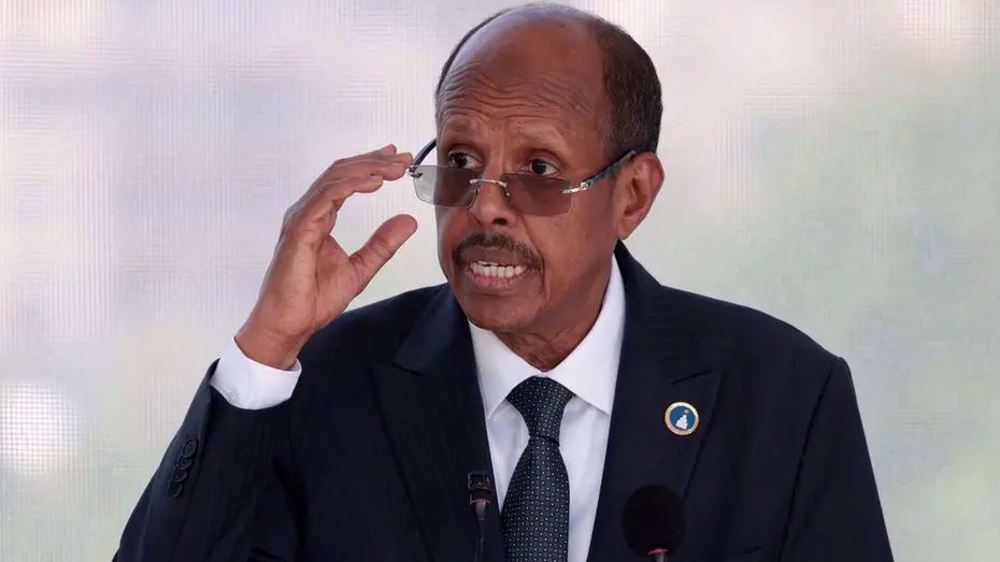Rights, aid groups denounce South Sudan’s sharp increase in visa fees for aid workers
Rights and aid agencies have censured South Sudan for its controversial decision to significantly raise the cost of foreign aid work permits as the crisis-wracked country is desperately struggling with an unprecedented famine and starvation that threaten millions of lives.
The government of the impoverished country unexpectedly announced in early March that it moved to increase foreign worker visa fees from $100 to as much as $10,000 per year, depending on the qualifications of the worker, with Minister of Information Michael Makuei arguing that Juba needed to make the change in order to raise government revenue.
The labor ministry, for its part, has already announced that it would charge foreigners $10,000 for working in a “professional” capacity, $2,000 for “blue collar” employees and $1,000 for “casual worker.”
Elizabeth Ashamu Deng, Amnesty International's South Sudan Researcher, on Saturday strongly censured Juba’s decision, saying “the government and the army have largely contributed to the humanitarian situation” in the famine-hit African country “and now, they want to create profit from the crisis they have created.”
She added that there were currently hundreds of aid workers operating in the country and the controversial decision on visa costs, if implemented, “could further hinder their critical work on the ground.”
Deng said there were hundreds of aid workers operating in the country, and that the new visa costs "could further hinder their critical work on the ground."

InterAction, the largest US alliance of international nongovernmental organizations, which groups 180 NGOs working worldwide, also denounced the move.
“If this measure is put into practice, it will be impossible for humanitarian workers to pay this kind of sum,” said Director of Humanitarian Practice at InterAction Julien Schopp on Saturday.
He added that “no organization can afford this, and if NGOs go to their institutional donors to request that extra money, I'm pretty sure that [the donors] will be reluctant to pay this because they will see this to some extent as ransom.”
On Friday, UN Under-Secretary-General for Humanitarian Affairs Stephen O'Brien said the world was facing the largest humanitarian crisis since 1945, when the world body was founded, as widespread starvation and famine were increasingly threatening the lives of over 20 million people in four impoverished countries, including South Sudan, where over 7.5 million people need assistance, including some 3.4 million, who have been displaced. The figure shows an alarming increase of 1.4 million since last year.
Read more:

“More than one million children are estimated to be acutely malnourished across the country, including 270,000 children who face the imminent risk of death should they not be reached in time with assistance,” O'Brien said.
A bloody civil war in South Sudan began in December 2013, when President Salva Kiir accused his former Vice President Riek Machar of plotting a coup against him. The two sides then got involved in a cycle of retaliatory killings that have split the impoverished country along ethnic lines between the rival communities of Dinka and Nuer, killing thousands of people.
Read more:
A peace agreement convinced Machar to return to the capital, Juba, but fighting broke out again in July 2016 after a new wave of fighting erupted in the world’s youngest nation. Machar is currently in exile in South Africa after fleeing the new spate of violence.
Numerous international attempts to reach a truce between the warring sides have failed.
Iran urges restraint, immediate ceasefire as Afghanistan–Pakistan fighting escalates
VIDEO | Press TV's news headlines
VIDEO | Kabul residents call for calm as tensions escalate with Pakistan
Iran FM: Success of nuclear talks hinges on ‘seriousness’ of US
Pro-military Israeli journalist detained on suspicion of raping child: Reports
Anthropic resists US War Department push for unrestricted AI access
Iran naval unit returns from drill, cmdr. vows to defend borders to ‘last breath’
VIDEO | Press TV's news headlines










 This makes it easy to access the Press TV website
This makes it easy to access the Press TV website